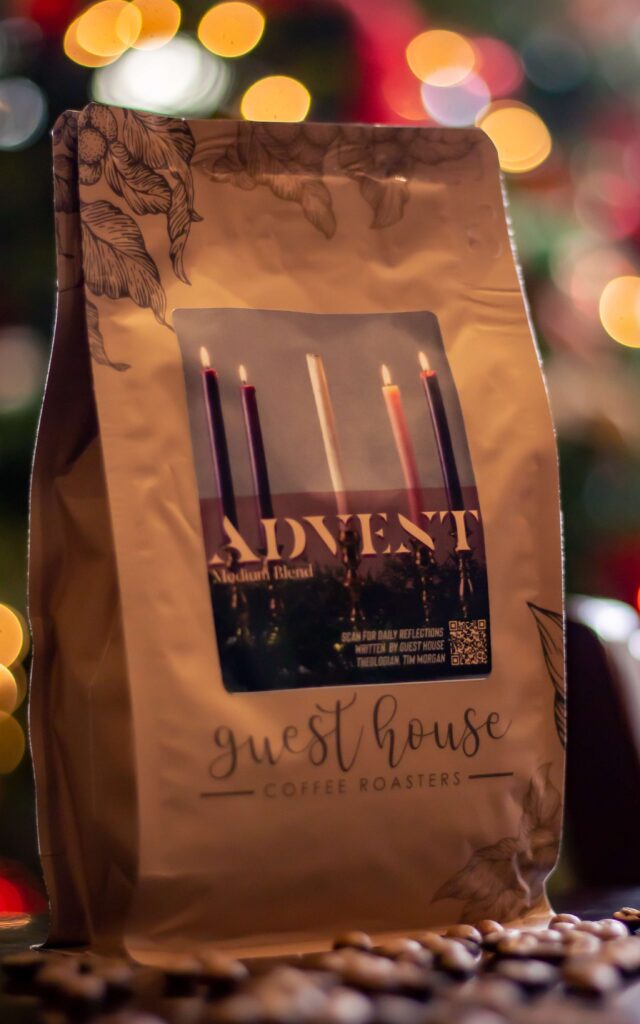“In that day the dead shall hear the words of a book, and out of their gloom and darkness the eyes of the blind shall see” (Isaiah 29:18).
Our situation before the coming Jesus is one of dislocation. A faint memory of home, the safety of the Lord’s promises, the fortifying embrace of his calling, the holy comfort of his direction—all these draw us out, stretch us wide between the “real world” and what we believe to be true. Cognitive dissonance is the frame of this our situation. The psalmist writes,
You brought a vine out of Egypt; you drove out the nation and planted it. You cleared the ground for it; it took deep root and filled the land. The mountains were covered with its shade, the mighty cedars with its branches. It sent out its branches to the sea and its shoots to the River. Why then have you broken down its walls, so that all who pass along the way pluck its fruit (Psalm 80:8-12)?
God’s people have been established by him. They’ve been brought up by him. They’ve been nourished, enlarged, and strengthened by him. However, they’ve also been rendered defenseless by him. Measured by their strategic vulnerability, God’s people appear for all intents and purposes abandoned by him. If God is accomplishing something which is measurable in the terms of our world, then he appears to be failing (John 18:36). Our dislocation is characterized precisely by the incompatibility of our instruments of measurement with what God’s doing in the world: “Ah, you who hide deep from the Lord your counsel, whose deeds are in the dark, and who say, ‘Who sees us? Who knows us?’ You turn things upside down” (Isaiah 29:15-16).
Jesus’ coming, however, is the relocation of God’s people, our restoration. It equips God’s people with the proper instruments to “measure” (i.e., perceive) what God’s doing in the world. After the conception of Jesus, Mary went to visit her relative Elizabeth. Upon arrival, “Elizabeth was filled with the Holy Spirit” (Luke 1:41). The coming of Jesus frees us from our dislocation by removing the veil which lies over our hearts (2 Corinthians 3:15-18). His coming produces something which decidedly does not belong among a dislocated people: joy (Luke 1:44). The fruit of Mary’s womb is Lord’s supper, the meal of God’s people’s home. It is “the tree of life” (Revelation 22:2) which nourishes God’s city and heals the nations. In Christ’s coming, the Lord’s face shines upon us and we are saved (Psalm 80:7, 19); in his coming, the day breaks upon the night of our alienation, never to withdraw into darkness again (Revelation 21:25; 22:5; Luke 1:78-79) He brings us to our home which “is the Lord God the Almighty and the Lamb” (Revelation 21:22). At his coming, the baby in the womb of creation leaps for joy (Luke 1:44), because the Lord “has looked on the humble estate of his servant” (Luke 1:48).
Today, it would be worthwhile for us to reflect upon that which we consider home. Where do we look for comfort? Where do we retreat to at the end of the day? How are our days and our lives organized around where we’re headed? How does this destination affect our measurements of success or failure? Our true home is the Lord’s city, the foundation of which is laid in Jesus’ birth, the descent of which accompanies Jesus’ coming (Revelation 21:2). The character of this city, the fact that it is the Lord’s, and the relationship of its inhabitants to Christ (Revelation 21:27) determines the standards of success and failure for those who call it home.
Further Reading: Psalm 80; Isaiah 29:13-24; Revelation 21:22-22:5; Luke 1:39-48a
Written by Guest House Theologian, Tim Morgan. These reflections are a complimentary addition to our Advent Blend Coffee Bags. Scan the QR code each day to read the most recent reflection.

More Advent reflections can be found here.
